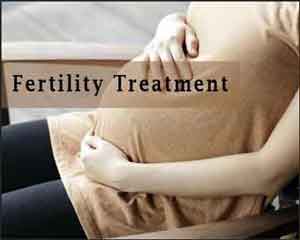- Home
- Editorial
- News
- Practice Guidelines
- Anesthesiology Guidelines
- Cancer Guidelines
- Cardiac Sciences Guidelines
- Critical Care Guidelines
- Dentistry Guidelines
- Dermatology Guidelines
- Diabetes and Endo Guidelines
- Diagnostics Guidelines
- ENT Guidelines
- Featured Practice Guidelines
- Gastroenterology Guidelines
- Geriatrics Guidelines
- Medicine Guidelines
- Nephrology Guidelines
- Neurosciences Guidelines
- Obs and Gynae Guidelines
- Ophthalmology Guidelines
- Orthopaedics Guidelines
- Paediatrics Guidelines
- Psychiatry Guidelines
- Pulmonology Guidelines
- Radiology Guidelines
- Surgery Guidelines
- Urology Guidelines
Infertility linked to higher risk of death among women

Women with a history of infertility have a 10 percent increased risk of death compared to those without reported infertility struggles, according to results of a new study from researchers at the Perelman School of Medicine at the University of Pennsylvania.
The study, which examined the association between infertility and mortality as well as specific causes of death, also showed that women with a history of infertility have a 20 percent increased risk of cancer-related mortality. The results of the study were presented this week at the annual American Society of Reproductive Medicine Scientific Congress & Expo in San Antonio, Texas.
"While associations between infertility and overall health have been noted in the male population, until now, the relationship between a woman's fertility and her overall health has not been as robustly examined," said lead author Natalie Stentz, MD, a fellow in Reproductive Endocrinology and Infertility at the Perelman School of Medicine at the University of Pennsylvania. "Though we can't yet explain the association between infertility and mortality, it is possible that the condition may be an early indicator of either endocrine or inflammatory disruption that over time, leads to long-term health issues such as malignancy or diabetes."
In the new study, researchers examined data from the 78,214 women enrolled in the National Cancer Institute's Prostate Lung, Colorectal, and Ovarian (PLCO) Cancer screening trial. Study participants were enrolled between 1992 and 2001 and were followed 13 years, or until study withdrawal or death. Using data collected in that study, the Penn team examined the effect of self-reported infertility (inability to conceive for one year or greater) on all causes of mortality and primary cause of death.
Infertility was reported in 14.5 percent of the study population. At the completion of follow up, infertile women were 10 percent more likely to be decreased when compared to women who were able to get pregnant more easily, though the authors note that women from each group (fertile and non-fertile) died at a similar age. When examining reproductive cancers, the authors noted that while patients with infertility were 44 percent more likely to die of breast cancer, infertility was not associated with an increased risk of ovarian cancer or death from ovarian or endometrial cancers.
Additionally, individuals with infertility were 70 percent more likely to die from diabetes, despite both groups of women having a comparable prevalence of diabetes.
"The results raise significant questions over the long-term effects of infertility and whether it is infertility itself or an underlying condition that predisposes an individual to infertility that drives these increased risks," Stentz said. However, she adds that because infertility is diagnosed during a woman's reproductive years, typically many years before the end of life, a correlation between fertility and health can be challenging to study on a population level because of the amount of time that is needed to follow these patients. "There is certainly much left to be studied - including how pregnancy and fertility treatments may affect mortality later in life - but our results highlight the fact that a history of infertility is indeed related to a woman's life-long health, and opens a potential opportunity for screening and/or preventative management for infertile women for both women's health care providers and the general practitioner."

Disclaimer: This site is primarily intended for healthcare professionals. Any content/information on this website does not replace the advice of medical and/or health professionals and should not be construed as medical/diagnostic advice/endorsement or prescription. Use of this site is subject to our terms of use, privacy policy, advertisement policy. © 2020 Minerva Medical Treatment Pvt Ltd